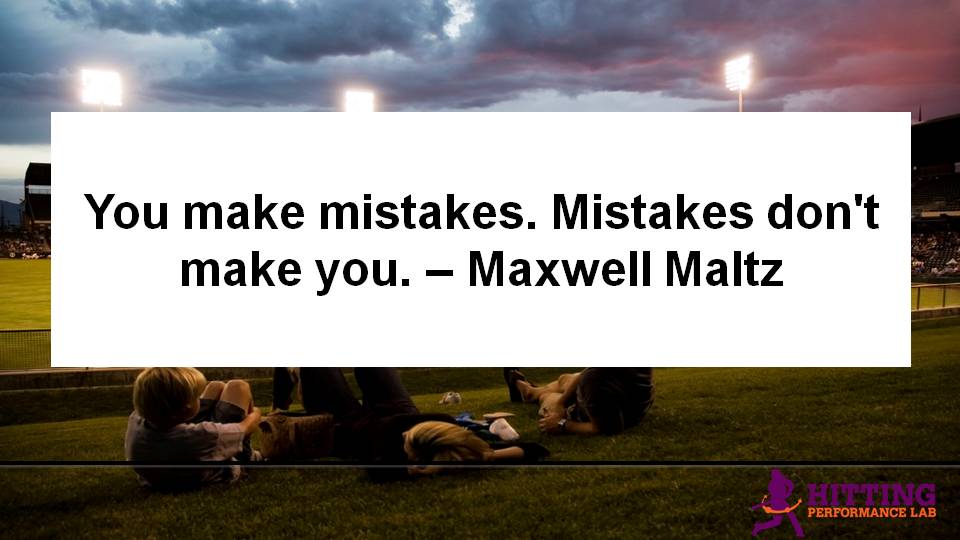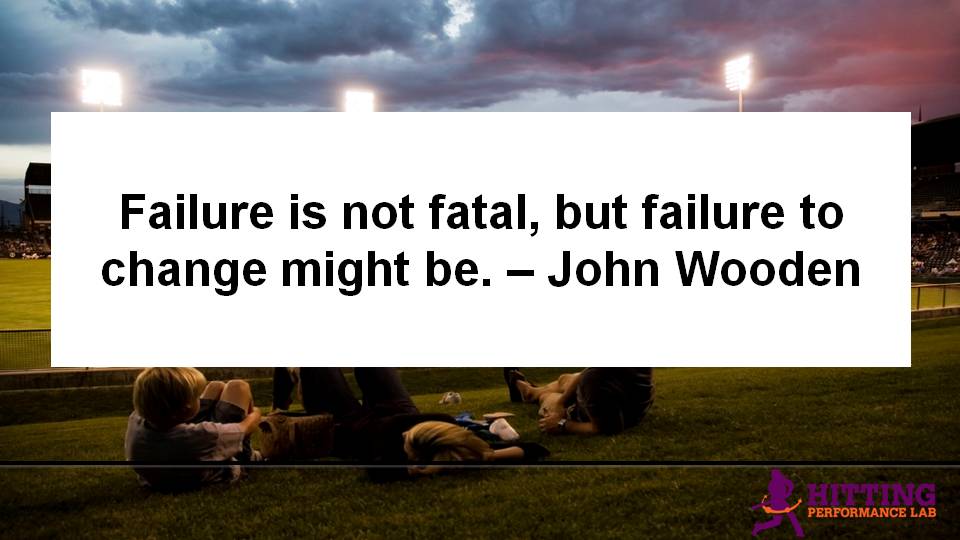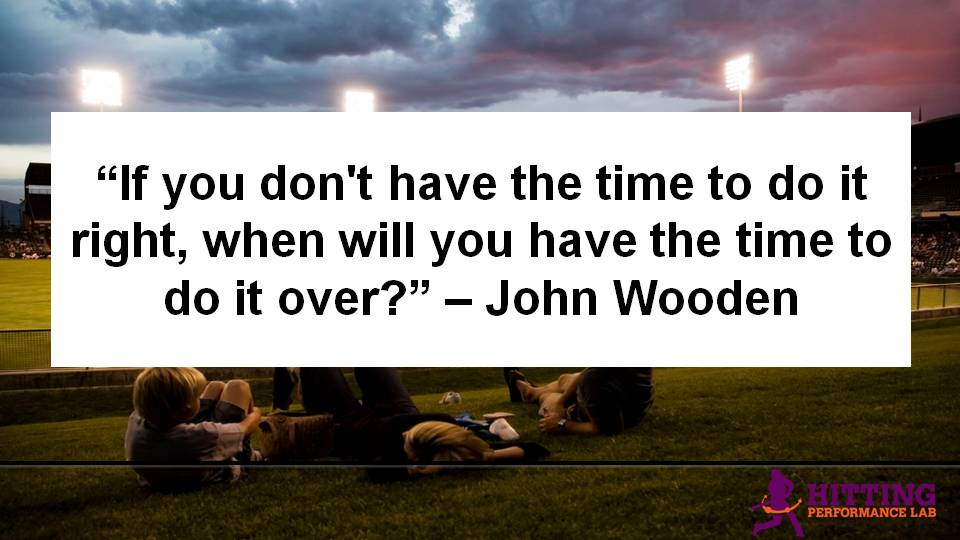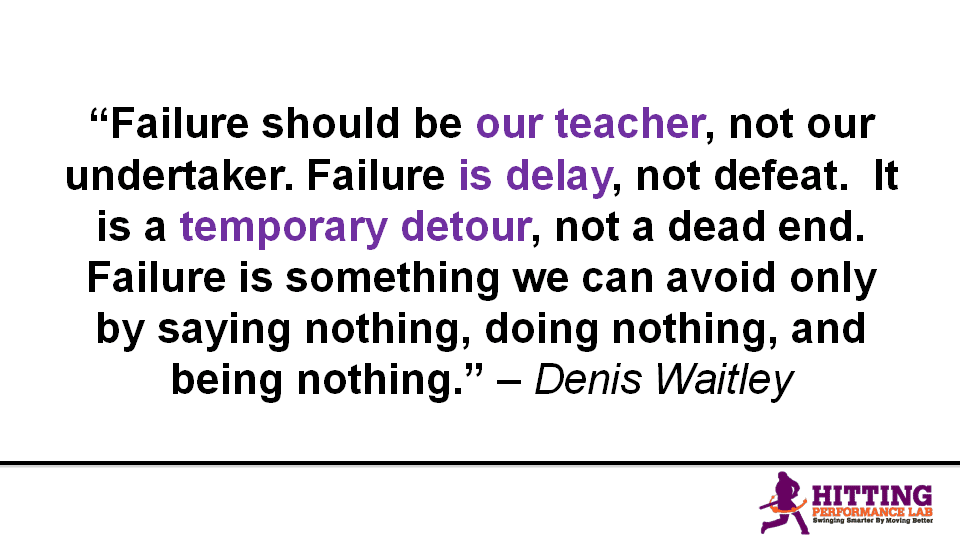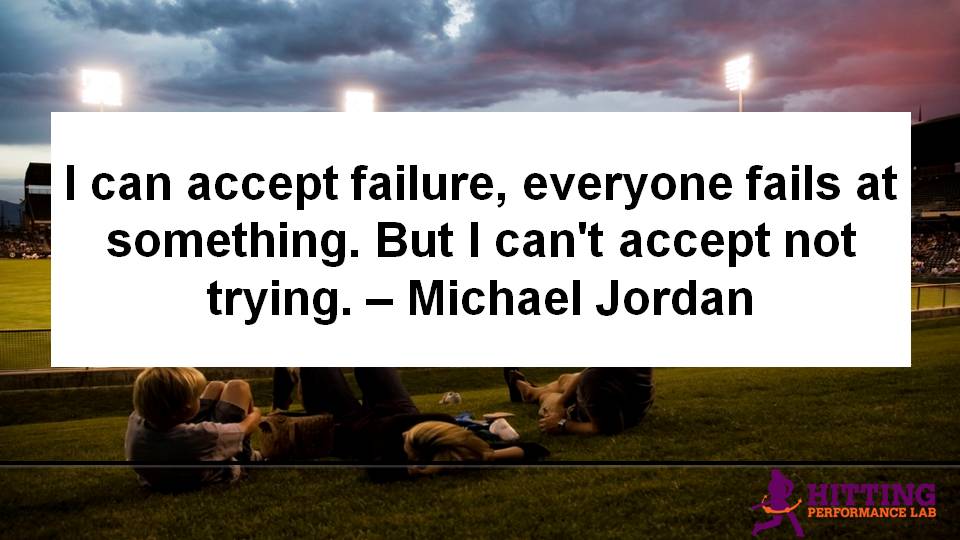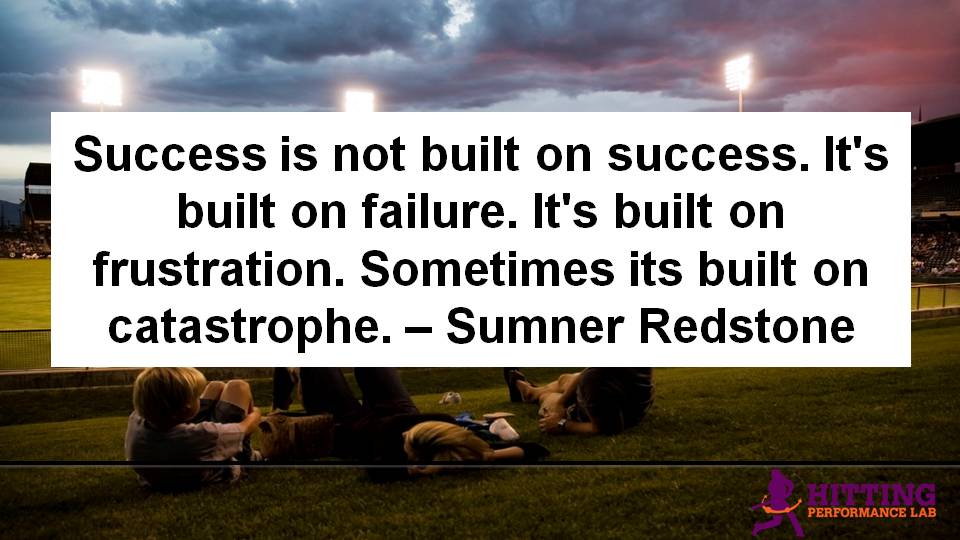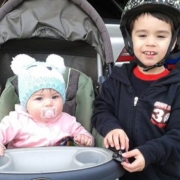Learn a solid youth baseball coaching 101 philosophy, 18 mistakes to avoid, and how to coach your son or daughter. These principles work for 8u, 10u, 12u, middle and high school players. They also work for softball players…
Coaching Kids Reader Question: “How do you get your own kid to listen/trust your advice as a coach and not as a parent?”

My son Noah and daughter Gracen, who were 4yo and 1yo respectively, at the time of this photo.
Be comforted to know that most parents coaching kids I’ve dealt with have a “coaching kids” challenge – especially when it’s their own! And I’m preparing to have the same challenge with mine…already have coaches lined up who will be working with them when the time comes 😉
Let me start off by saying, this post IS NOT telling you how to raise your kids. That’s not my place. I’m offering advice on what works for me. In addition, I’m not a child psychologist, or any other type of professional dealing in kid behavior. Just like with everything on this blog, try it out for yourself, if it doesn’t work, then toss it. Always be testing.
FYI, I may use the words “coach” or “coaching”, where you could also use the word “discipline” or “parent” or “parenting”.
That being said…
Over the years, I’ve received great advice from the parents of my hitters, before I had kids, and now. When it comes to coaching kids, below is me throwing my brain up on your tech device screen!
In this post I’ll share:
- The 30,000-foot view tips to keep “seasons of life” into perspective,
- 18 ways to get your own kid to listen/trust your advice as a coach and not as a parent, and
- Some high priority books and resources to read on the subject…
SCIENCE-BASED TRAINING:
Improve your hitting strategy dramatically by applying human movement principles.
Learn not only how and what to train but also the science behind the methods.
30,000-foot View Tips to Keep “Seasons of Life” into Perspective
When it comes to coaching kids, one thing to keep in mind from a 30,000-foot view…
I did a 6-week Men’s Fraternity class at my church a few years back. The purpose of the class was to train and equip “Godly fathers”. One thing that stuck out for me at the time, was that your perspective as a dad (or mom) MUST change with the season of life. What does that look like?
- Up to 12-years-old, parents are seen as coaches. Most kids in this age range are less resistant to a parent barking orders.
- During the psychological warfare teenage years, 13-years-old to college, parents are to be seen as a “listening” counselor. God gave us two ears and one mouth for a reason – to listen twice as much as we talk 😛 And,
- The years following college, young adults getting into their professional lives, parents move into the “colleague” season of life. New families, babies, etc.
Another great piece of coaching kids advice for those parents who wear both the “coach” and “parent” hat, was to have the ability to be coach on the field, but mom/dad in the car and away from the field.
One more fantastic piece of advice I received from a coach at Fresno State my Freshman year, at a time when I was so frustrated the coaches were tweaking every mechanical movement I did on the field (at least that’s how it felt to me anyway):
“You don’t need to worry when we’re coaching you. You need to worry when we aren’t. It means we’ve given up on you.“
Powerful. That message changed my perspective on coaching the rest of my career at Fresno State! Look, coaching kids is love. Make your kids aware of that.
18 Ways to get your own kid to Listen/Trust your Advice as a Coach and not as a Parent
I want to preface this section with the fact, I haven’t mastered any of the following points. That’s right, still working on them. And I welcome the fear that this process will be a journey, and not a destination. I’m far from being perfect. I heard this expert’s advice on one of my wife’s favorite dating shows Love at First Sight:
“If you want to find a perfect person, then you have to be perfect yourself.” One of the frustrated men who got married on the show responded with, “But I’m not perfect”, and the expert added, “Then it looks like you get the message.” (liiight bulb)
We don’t have to be perfect as parents, we just have to be willing to learn, make mistakes, adapt, and try again. The following list of 18 tips for coaching kids will help (especially when the kids are your own!)…
- Don’t overdo discipline. Making mountains out of mole hills – pick your battles. Being consistent with rules and consequences is HUGE. Remember Goldilocks Golden Rule…too many rules, and they’ll rebel later. Little to no rules, and they’ll walk all over you and everyone else. Find the sweet spot. Without consistent rules and consequences, they won’t build the necessary mental muscles to develop self-discipline when they’re adults.
- Avoid overuse and burnout – playing multiple sports or being involved in multiple movement activities is key. Variety is fun to kids, and the spice of their life. The same thing over and over can become boring, which leads to burnout. Bodies engaged in a variety of movements is a healthy body. Say no to Sport Specialization early on.
- Make sure they’re “listening” (the VAK Model) – did you know that in less than 5-minutes, you can get a ballpark of a player’s learning style by asking them a few questions, and watching for where their eyes go? Up to left or right – visual learner. Side to side – auditory learner. Down to left or right, and straight ahead – kinesthetic learner (feel). Neuro-Linguistic Programming (NLP) calls this the VAK Model. This comes in handy when coaching a child, they don’t look at you, and you tell them, “Look at me when I’m talking to you”…they may primarily be an auditory learner, NOT visual.
- Be careful tone of voice – my 5yo son is very sensitive to tone of voice (auditory learner), so I have to be careful when coaching him. I must have good reason to raise my voice during times of correction with him. Also, tempo of words are important when raising the voice or not. You want to strive for keeping the voice under control even when raising it.
- Don’t question by entrapment – asking leading questions in order to trap them isn’t very effective. It’s condescending actually. I’m a work in progress on this one. Putting kids through an interrogation is a terrible idea, especially if you don’t want resentment later. The key is coming off with genuine curiosity as to why they made the mistake they did. Remember, they’re not perfect, neither are you. Easy on paper, hard to apply.
- Caution them once, then let them make the mistake (providing mistake doesn’t do extreme physical or mental harm) – ever tell your kid to not do something over and over and over and over? Lessons are more effective when we get ‘hands on’ experience learning them ourselves.
- Praise them whenever they do something you want them to do – “You catch more flies with honey than you do with vinegar”. Behavioral conditioning is much more effective when rewarding for positive things, rather than punishing for the negative (i.e. taking things away). See Karen Pryor’s book Don’t Shoot The Dog in the resources below. I take my 5yo to 7-Eleven to get his favorite candy RIGHT after school. We also award stickers for doing certain things like listening the first time, cleaning up messes at home, and being patient with his little sister when she’s hitting him! 10 stickers earn him a toy in the $10-20 range.
- Ask their advice, put yourself in a learning mode – genuine curiosity. Be honest, you LOVE when others ask for your advice, and seem genuinely interested in what you have to say. Our kids love giving THEIR advice. Be interested in their thought process. I find it fascinating how clever they are at their age. Sometimes I underestimate them, and they surprise me.
- Patience – using guided meditation apps like Headspace or Calm can be a real help with this. The book resources below will help too. Extreme patience in infectious. Kids will model their parents. If you’re an angry person, then chances are high your kids will be too.
- Understand what their big WHY is – what inspires them? What motivates them? Are they looking for attention (need significance), love (craving connection), routine (are they overwhelmed), or variety (are they bored)? Knowing what’s driving their bad or good behavior can be a big help in prevention or promotion in the future.
- Show them the book, video, etc. you’re getting your info from – show them the hitting information you’re teaching them isn’t just “your” opinion. Show them the science, experimentation, case studies, etc. Give them proof. Kids are pretty intuitive. They seem to know when something has legs or when it doesn’t. Give them proof. Check out this post on How to Get Hitters to Buy Into the System.
- Give them options to “experiment” with – instead of saying, “Do it this way, not that way”. Give them options. You like options, don’t you? Remember, these human movement principles are like bumpers in the gutter lanes of a bowling alley. I don’t care what path the ball rolls down the lane, just as long as it stays between the bumpers. A hitter’s stride type (aka “Float”) doesn’t matter, just as long as there is one. Let them test, and choose which they feel more comfortable with. Check out this post on Baseball Stride Drills: A How To Guide
- Show them high level movement examples – humans learn best by modeling. Before there were “hitting coaches” – yes, there was such a time – hitters figured it out by watching other high level hitters. And yes, it’s okay when coaching kids, to teach them high level movements. Movement is movement. Just like you wouldn’t teach an 8yo that 2 + 2 = 5 because they’re too young to learn the truth…you wouldn’t do the same with movement.
- Fun – coaching kids MUST be fun. I love positively teasing the kids. I like making things up to see if they’re listening, “Where’s the keys to the batter’s box?”, “Do you know where the box of curve balls is?” “After running past third base, you run to FOURTH base…” etc. Keep it light, and the drills fun. Check out this post on: “TBall Drills: How To Coach Tee Ball Without Going Insane“ that may be of interest to those frustrated with coaching younger athletes.
- Keep expectations reasonable – “reasonable” doesn’t mean below their current ability level. The expectations will depend on the age group. Operating at or slightly above skill level will help players grow. Learn to manage player frustration, know when to regress or progress a drill.
- Break things into small bites – make small circles at first. The accumulation of many small circles build into a BIG circle snowball. Focus on one movement principle at a time for a week or month, depending on the age and ability level. Patience is your friend regardless of what decision the coach whose focus is on winning may be.
- Reward effort not talent – reward effort. Reward process not performance. “Good job!”, “You’re so smart”, and “You’re so talented” are not helpful pieces of feedback. Coaching kids in character is best. Remember, kids MUST learn life lessons through sports, not the other way around.
- Pat & Pop Method or the compliment sandwich – give the hitter 1-2 things you really like about their swing (the “Pat” on the back), before giving them the constructive criticism (the “Pop” in the mouth). Or compliment-criticize-compliment sandwich. You don’t like to be constantly criticized, and neither do they. Teenagers often call this nagging. Find the good before finding what needs to be corrected.
Coaching Kids Books & Resources
CLICK HERE for a post by the Positive Coaching Alliance titled, “7 Must-Read Books Of All Genres For Parents”. Here are the books mentioned in that post, and a few others helping solve the question we started off with in this post:
- The Science Of Sticky Coaching, by yours truly (video below)
- Why Zebras Don’t Get Ulcers
 , by Robert Sapolsky
, by Robert Sapolsky
- Nichomachean Ethics
 , by Aristotle
, by Aristotle
- Play: How It Shapes The Brain, Opens The Imagination
 , by Stuart Brown
, by Stuart Brown
- Ethics Of A New Millennium
 , by The Dalai Lama
, by The Dalai Lama
- Mindfulness For Beginners
 , by Jon Kabat-Zinn
, by Jon Kabat-Zinn
- Coach: Lessons On The Game Of Life
 , by Michael Lewis
, by Michael Lewis
- The Power Paradox
 , by Dacher Keltner
, by Dacher Keltner
- The Art of Power
 , by Thich Nhat Hanh
, by Thich Nhat Hanh
- Don’t Shoot the Dog
 , by Karen Pryor
, by Karen Pryor
- Coach Wooden’s Pyramid of Success
 , by John Wooden
, by John Wooden
Some I’ve read, and others are currently on my reading list. This is a perfect segue to shamelessly plug my “sticky coaching” book on Amazon… 😛
by Dr. Gio Valiante – sports performance psychologist, Dr. Gio, who works with the top PGA tour players. This book has nothing and everything to do with the baseball.
by Daniel Coyle – how the body learns, and that greatness isn’t just in our DNA code.
by John Medina – John brings up some great research and study, and one in particular says that telling a kid, “You’re so smart!” will handicap them, rather than saying, “You must’ve worked hard for that.”


